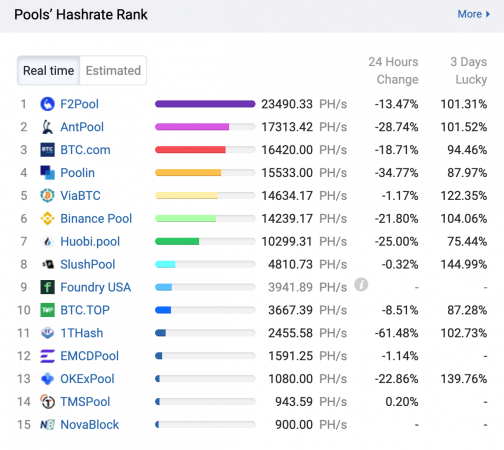A surge in price has pushed Dogecoin, the meme-themed cryptocurrency, to the fifth-largest market capitalization. In a matter of three days, DOGe has seen a price increase of more than 400%.
On April 13, DOGE sat at $0.07 apiece. At the time of publication, DOGE is trading at about $0.34.

TradingView
Billy Markus and Jackson Palmer created the Litecoin-forked cryptocurrency in 2013. The coin began as a joke, modeling the name and logo on the Shiba Inu from the popular doge meme. A cult following sprung up around the projects in places like Reddit and Twitter, though those early days were marred by scam activity within the small community.
Recently that following has grown to include investors like Tesla CEO Elon Musk and meat snack maker Slim Jim. Some are attributing this most recent price bump to a new campaign by the meat product company. Over the past few months, it’s been engaging in Doge and Dogecoin content in an effort to boost sales and its social following.
On April 13, just before the new price run began, Slim Jim announced it would begin selling a Doge x Slim Jim product on April 20, another meme nod, to benefit World Central Kitchen. It features the classic meat stick in a rocket-branded tube aimed at a moon-like cap.
DOGE’s social following also includes names like Musk and other, less tech-focused celebrities like musician Gene Simmons and celebrity chef Guy Fieri. Celebrity interest in DOGE followed the start of the craze in 2020 when investing in the cryptocurrency became a trend on the social media platform TikTok. The campaign sought to get DOGE to one U.S. dollar.
Musk and others jumped on board, tweeting that they had bought hefty sums of the coin and touting its promise with rocket ship emojis, placing DOGE in their bios and proclaiming “Dogecoin to the moon.” Even adult entertainment site Pornhub began accepting payments in DOGE.
The Dogecoin momentum is somewhat intertwined with the community behind the meteoric rise of GameStop and other so-called “meme stocks.” As the popularity of meme stocks skyrocketed, so did DOGE, hitting a new high of $0.02 on Jan. 28 of this year. It remains one of only seven cryptocurrencies offered on Robinhood, the popular brokerage app.
© 2021 The Block Crypto, Inc. All Rights Reserved. This article is provided for informational purposes only. It is not offered or intended to be used as legal, tax, investment, financial, or other advice.
Go to Source
Author: Aislinn Keely

